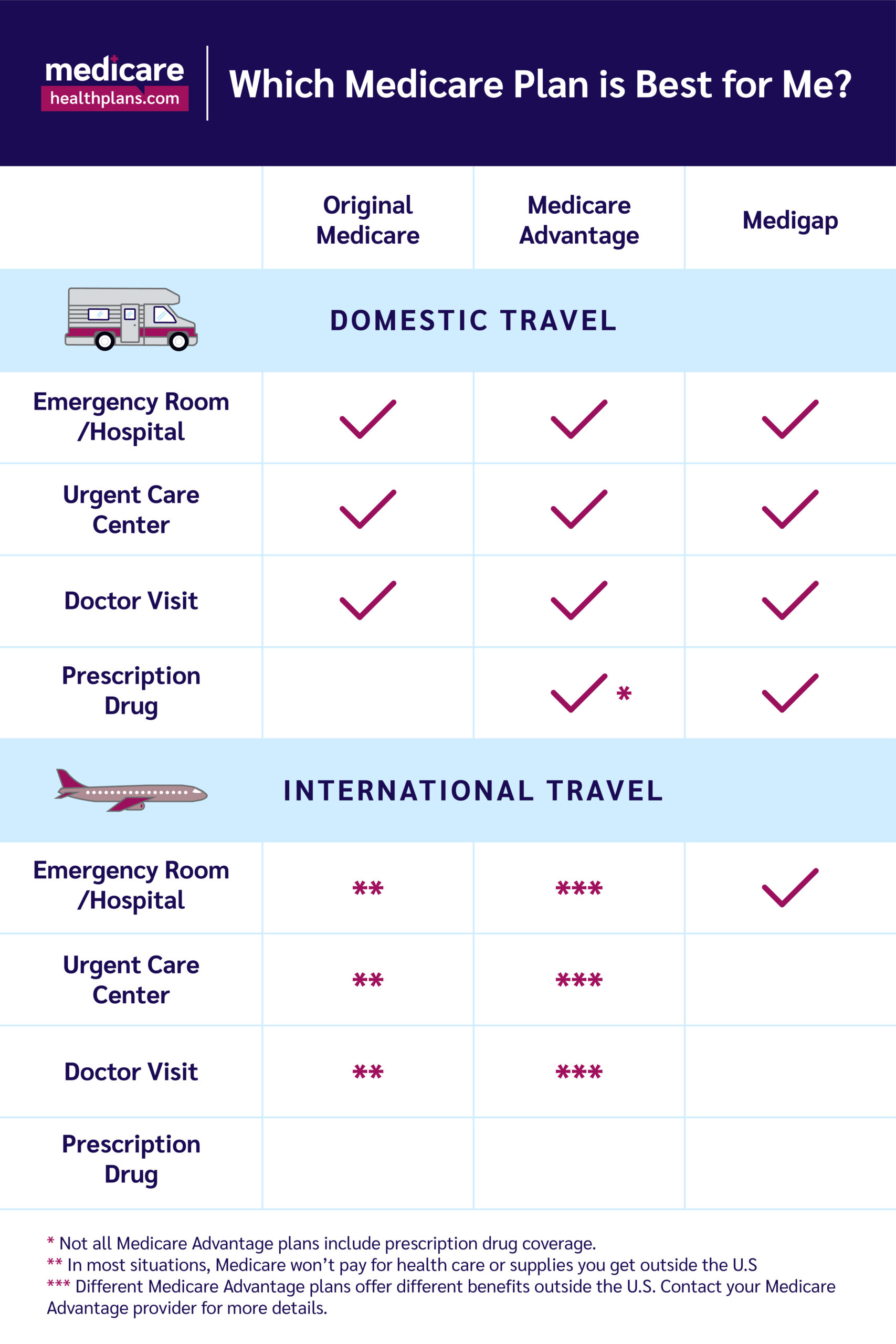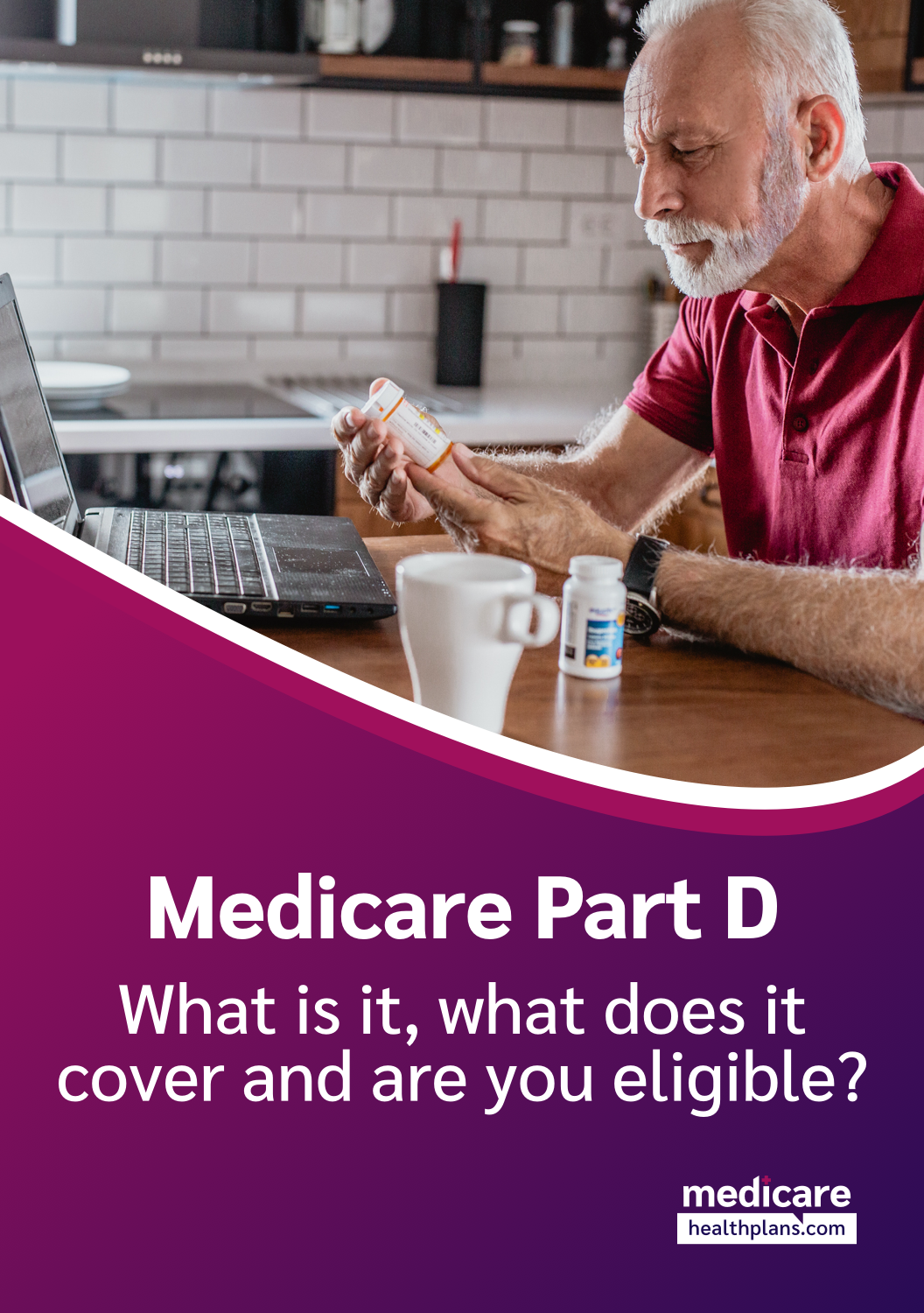C
Carrier
A private organization or company that contracts with Medicare to help pay for your health care services under Medicare Part B.
Under your Medicare Part D plan, “catastrophic coverage” indicates when you have paid a set amount of money out of pocket for prescription drugs in a given plan year and now qualify for a lower percentage of the share of costs in addition to your monthly premiums. Your catastrophic coverage period begins after your coverage gap (also known as the Medicare “donut hole”) has been fulfilled and stops at the end of your coverage year, as detailed by your plan.
Centers for Medicare and Medicaid Services (CMS)
The federal government agency that operates and manages the Medicare, Medicaid, and Children’s Health Insurance (CHIP) programs. It also runs the federally administered Marketplace.
Claim
A formal request made by you or a health care provider—on your behalf—asking Medicare to pay for services, medications, equipment, and/or other health-care-related expenses.
Coinsurance
The percentage of your health care claim that you have to pay after you’ve met your deductible and after Medicare pays its portion for drugs or services. For example, if you have a claim for an in-network provider for $2,000, a deductible of $500, and 20 percent coinsurance, then you would pay $500 to cover your deductible and an additional $300 for coinsurance (20 percent of $1,500). Medicare would pay $1,200.
Coordination of benefits
If you have more than one health insurance plan (for example, Medicare and private insurance), coordination of benefits refers to the share of costs each plan will pay for your health care claims. This usually involves designating a primary and a secondary insurance plan in the event you have medical expenses covered by all your insurance plans.
Copayment
Your copayment is the portion of each medical service you pay for doctor’s visits or prescription medications. It’s usually a set amount, such as $20 or $40, as opposed to a percentage (as with coinsurance). As long as your plan covers your doctor, medical service, or prescription drug, Medicare will pay the remaining costs.
Cost sharing
The amount you’ll be expected to pay for health care services. This may include copayments, coinsurance, and/or deductibles.
In the event you need a specific prescription drug or medication, this is the first decision Medicare makes regarding whether a prescribed drug is covered by your plan, as well as how much you may be expected to pay for it. It may also involve whether or not you qualify for an exception to your plan’s formulary if the prescribed drug is not currently covered by your plan.
Your Medicare Part D plan must inform you promptly about coverage determinations (72 hours for standard requests; 24 hours for expedited requests). If you disagree with the plan’s coverage determination, you may choose to appeal the decision.
Sometimes called the Medicare “donut hole,” this is the time period during which you may be required to pay a higher share of your prescription drug costs. Your coverage gap begins when you have paid a specific dollar amount for prescription drugs in a given year, set by your Medicare Part D plan and will last until you qualify for “catastrophic coverage.”
Creditable coverage (Medigap)
Any health insurance coverage you may have that can be used to shorten your pre-existing condition waiting period under a Medigap policy.
Creditable prescription drug coverage (Medicare Part D)
Any prescription drug coverage you may already have (such as through an employer or union) that pays, on average, as much as your Medicare Part D plan for prescription drugs and medications. If you have such a plan, you may be able to keep your coverage when you become eligible for Medicare without having to pay a penalty, even if you decide to enroll in a Medicare Part D plan at a later time.
















